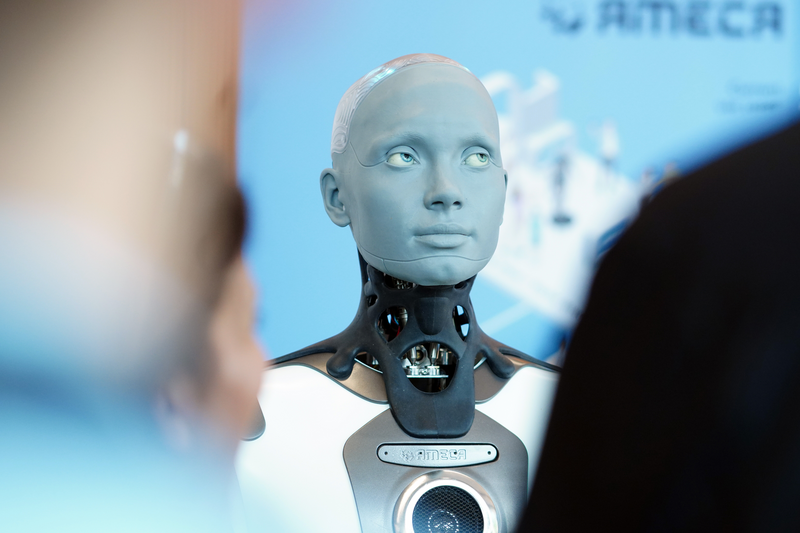The use of artificial intelligence in international arbitration has been a topic of debate and discussion long before the launch of chatbot ChatGPT in late November 2022. Indisputably, the adoption of AI tools by the legal profession provides myriad benefits to both clients and legal practitioners. For instance, the deployment of programs to undertake cumbersome, high volume, resource intensive legal research and document reviews leads to significantly greater efficiency and corresponding net time / costs savings.
With increased use of AI in the legal profession, including within the international arbitration arena, a question to ponder is whether AI is conceivably moving towards, if not already stood at, the precipice of “taking over” the primary functions of counsel and arbitrators alike?
This article briefly explores the impacts of AI on international arbitration and whether we might soon enter an era of “AI arbitrators”.
Benefits of AI technology in international arbitration
It is difficult not to embrace the immense benefits that AI can bring to international arbitration, as well as the legal profession generally. Whilst the use of AI technology within the legal industry remains quite novel, the theoretical advantages of AI should be carefully vetted. AI, through predictive coding, has potential to assist counsel by:
- Identifying relevant and material documentary evidence across innumerable disclosures;
- Conducting legal research in a fraction of the time it would ordinarily take; and
- Analyzing transcripts and other countless tasks in a matter of minutes.
In doing so, within the context of arbitral proceedings, AI holds the power to significantly improve the efficiency of typical workstreams by cutting the time required to perform any number of tasks allotted to it, and, as a result, reducing the cumulative time and costs associated with conducting lengthy arbitrations.
At first hand, we have already observed some of this capability deployed highly effectively in everyday practice. For example, in the performance of document production and review, Brainspace is an advanced data analytics platform that uses a complex algorithm to sort and narrow documents identified as “relevant” based on the keywords and filters applied by the user. This enables the document reviewer to make smarter, faster and more informed data decisions.
CMS mock arbitration future facing event
Other Generative AI tools such as Open-AI’s offerings, Google’s products, and Microsoft’s and IBM’s tools have great analytical capabilities and can be expected to be utilised by lawyers and counsel more frequently in the arbitral area. In a recent “future facing” event led by CMS, within the context of a mock emergency arbitration, participants consisting of clients and lawyers (of all seniorities) utilized those generative AI tools to prepare and exchange written submissions for a 2-hour hearing – all achieved within just a 24 hour timeframe.
Some broad reflections from the event:
- The participants found the tools highly effective in analysing legal issues, producing arguments and submissions and identifying legal principles and authorities in minimal time.
- A shortcoming identified in the experiment, however, was where the substantive issues became more complex or technical; at which point the AI tools started “hallucinating” producing fake legal citations or fictitious references to arbitral rules.
- Not only were the tools useful in crafting legal submissions, the participants roundly agreed that the AI systems were also highly effective planning tools used to generate comprehensive templates for written submissions and procedural orders – thereby minimising time and resource inputs, with corresponding efficiency improvements.
- An important lesson gathered from this exercise is that lawyers’ input remains essential for verifying the accuracy of AI output and applying common sense judgment over how to use that output.
It would seem, therefore, the relationship between counsel, arbitrators and AI, in the short term is both complementary and multitudinous: the adoption of AI may assist counsel and arbitrations in numerous respects, not least in the organizing of evidence, the crafting and presentation of arguments, the analysis of evidential fact patterns, and the preparation of awards. However, given that no AI system is (yet) perfect, human input remains necessary as the ultimate filter and interpreter of AI generated output.
AI Arbitrators
In terms of arbitrator appointments, AI may soon be able to facilitate the process by generating a list of qualified candidates for the parties’ consideration. AI may take into account relevant factors such as subject matter expertise, linguistic capabilities, availability, and potential conflicts of interest to suggest suitable appointees. This may also eliminate the unconscious bias element of party-appointed arbitrators, reducing the likelihood of appointment challenges.
Sophisticated AI programs, coupled with advanced algorithms, already possess the capability to make accurate predictions concerning the merits outcome of a given matter using available data. Whilst that is an intriguing prospect, there is still some way to go before AI can provide acceptable reasoning as to how or why it arrived at a particular result or conclusion. Reasoning lies at the core of any credible arbitral award because it is the articulation of a tribunal’s decision-making process. And it is through this articulation that a tribunal’s determinations attain optimal transparency and (thereby) substantive legitimacy.
The current limitations of AI suggest that it can only make predictions based on available data – namely, previous arbitral decisions. Confidentiality in arbitration, however, severely throttles the availability of any such data for AI machine processing. Accordingly, so long as disputant parties maintain their current custom of cloaking arbitral awards in confidentiality (noting that this is a significant advantage of choosing arbitration over litigation), AI machines will lack the required data to predict arbitration outcomes with any meaningful accuracy.
Absent the ability to predict merit outcomes or provide proper reasoning, it is highly doubtful that AI will replace human decision-making functions in the foreseeable short term. For the time being at least, humans and AI will continue to work in a complementary fashion.
Ethical considerations
There are also a number of ethical concerns associated with the use of AI in international arbitration that pose clear challenges to the notion of human arbitrators being supplanted by AI arbitrators. One such headwind is the validity of the award. An arbitral award contains the arbitrator’s determination and their reasons for arriving at that express outcome. For the reasons highlighted earlier, an AI arbitrator is currently incapable of rendering a credible determination supported by adequate reasoning.
Furthermore, with cybercrime ever increasing, hacking, spam and malware viruses are all potentially capable of manipulating an AI-generated decision. Obviously serious ethical concerns may arise as to the authenticity, impartiality and credibility of any AI arbitrator decisions as a result.
These considerations extend to the arbitration process itself. Another key concern is that AI could be used to create false evidence or tamper with evidence, something also known as a “deepfake”, thereby harming the integrity of the arbitration process.
Conclusion
Many law firms and arbitral institutions have already started adopting AI tools in everyday practice, and as the technology becomes more sophisticated, its rapid and wide uptake is an inevitable prospect. In that climate of technological change, it will be increasingly difficult for arbitral users not to embrace the benefits of AI.
Nonetheless, there are obvious practical, ethical issues and policy considerations that will continue to preclude AI from fully replacing the primary functions of counsel and arbitrators. That is not to say, however, those challenges are incapable of being overcome at some future point with further technological advances.
Damian Watkin, partner, is a major projects international dispute resolution specialist, primarily focused on the energy sector. Annie Luong, associate, is a construction and infrastructure lawyer who specialises in the resolution of disputes.
This article was co-authored by Kieran MacArthur, Trainee Solicitor.


















